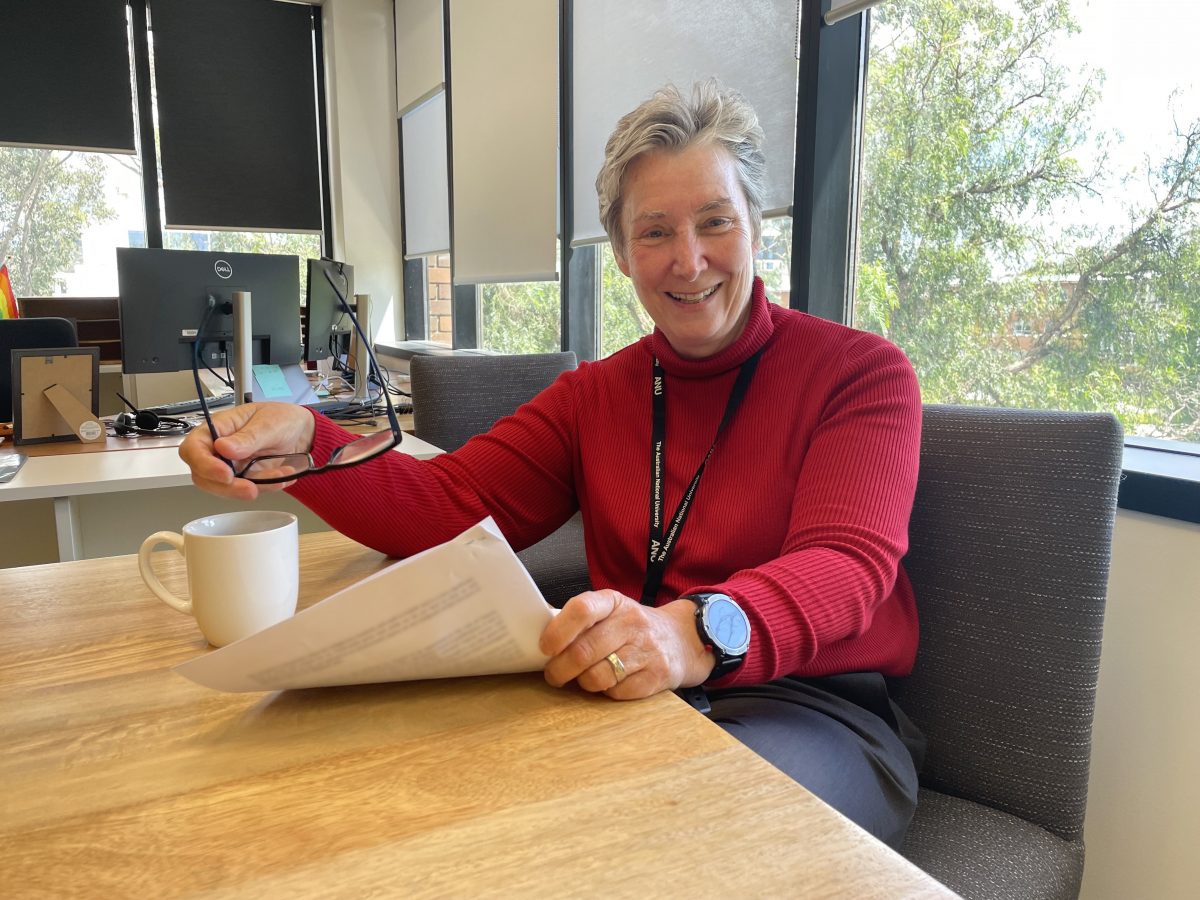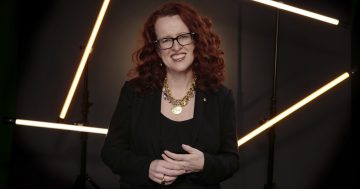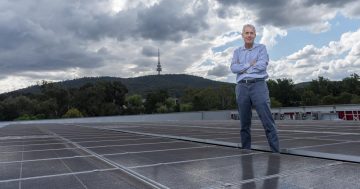
Professor Bronwyn Parry’s career path has been anything but orthodox. Photo: G Jacobs.
As career arcs go, it’s a doozy. But as Bronwyn Parry explains how she went from being a set carpenter on Mad Max films to the dean of ANU’s School of Art and Social Sciences, it all makes sense.
Canberra-educated Professor Parry is a bioethics expert with an enduring interest in social impact, the first woman carpenter to work in Australia on major film sets and a lifelong advocate for big ideas and bold, broad education.
“I think my story is an interesting one for anybody who begins life thinking that they’re on one trajectory, and then actually discovers that life is full of opportunity,” she says.
”You can segue your way into entirely other iterations of yourself very successfully over a period of time.
“Wherever you are at the moment is not necessarily where you’re going to stay or be for the rest of your life, so you shouldn’t feel boxed in or contained by it.”
Professor Parry’s story began at Phillip College (now Canberra College), where she was part of the first intake. Students could take university-level subjects such as anthropology but were also expected to do something practical with their extended two-hour lunch break. Bronwyn, whose grandfather had been a cabinet-maker, did both theatre and construction.
She began studying at ANU, but after a car accident had “a bit of an epiphany” about her life direction. However, setting out as a young woman carpenter wasn’t easy.
“Honestly, people were quite startled,” she recalls. “They were like, ‘Well, you’re a girl. You know that, don’t you?’
On the point of believing her dream was over, she met one of Australia’s leading theatrical producers, Christine Duncan, and all but forced her to employ the would-be set builder. Work followed for everyone from the Sydney Theatre Company to advertisements for Twisties and Cadburys. After her apprenticeship, Bronwyn worked with Opera Australia, becoming foreman of its Sydney workshop.
She went on to work on The Adventures of Priscilla, Queen of the Desert, the Mad Max films, Dead Calm and others. But something was niggling.
“I felt like the creative side of me was absolutely fulfilled, but the intellectual side of me wasn’t. I would listen to Radio National, I would be interested in politics and cultural issues, sociological issues, and I thought, I’m so interested in those questions, and I didn’t really have a chance to explore any of them.”
At 29, Bronwyn went to Macquarie University as a mature-age student enrolled in Liberal Arts. The world opened.
“I did sociology, I did history of science. I did linguistics, I did Australian politics, I did human geography. And I had a really rounded, broad education, which I loved. And at the end of that, I did an honours year. I think because I was so hungry for it, I just kind of outperformed myself during the degree and I won the University Medal.”
And based on that, the former set carpenter found herself at Cambridge University, doing a PhD.
Ideas led her everywhere: a randomly chosen unit on the history of science included the earliest attempts at blood donation in the 17th century. From there came a fascination with bioethics and the social impact of science and medicine, which led, eventually, to membership of the UK’s leading bioethics advisory groups.
“Whether you’re 18 or you’re 28, there is such an incredibly rich, diverse array of fascinating subjects and topics that you might want to immerse yourself in,” Bronwyn says. ”And what I always think is, how would you know what you’re interested in?”
She wants to bring these same values around diverse intellectual offerings to her work at the ANU. Bronwyn says she was “exercised” by the Australian tertiary sector narrative suggesting that arts degrees don’t lead to jobs.
“If you look at the UK’s cultural industries, everyone looks at advertisements that have gone viral and become iconic, their curatorial industries, their exhibitions which draw huge numbers of people,” she says.
”These things are literally driving billions of dollars worth of expenditure; in fact, more so than, for example, something like coal mining.
“Diversity is essential right across the institution, whether it’s in our student body, in our staff, in our intellectual offerings, because it is what makes you open and receptive to new ideas, to new concepts.
“It’s about judging at the end, not at the beginning, what the productivity of those disciplines is going to be. And you’d be very surprised, I’m sure, by the results of that.”














